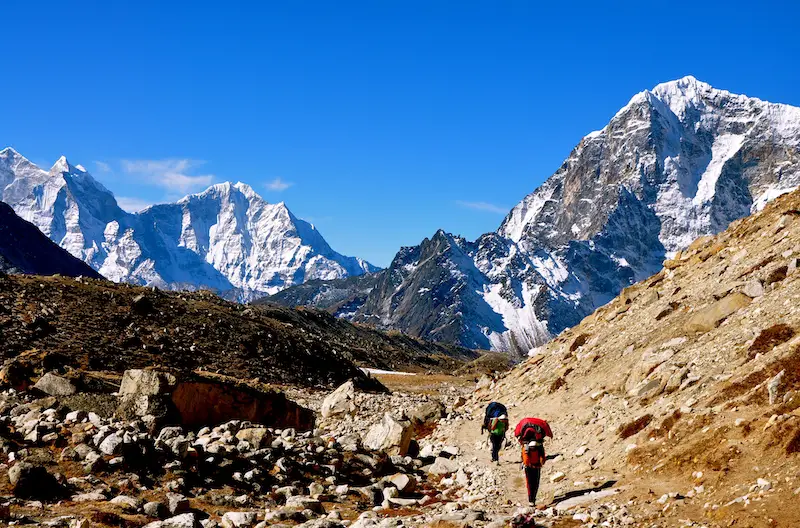A few weeks back, Nepal made the unprecedented move of shutting down all of the 8000-meter peaks within its borders, cancelling all of the climbing permits for Everest and other mountains for the spring. The country also announced that it would not longer be issuing on-arrival visas for the foreseeable future, making it more challenging for visitors to enter the country. Challenging, but not impossible, as obtaining a visa through a Nepali embassy was still an option and some travelers had already obtained their visas prior to the ban going into effect. That meant that there were groups of adventurous travelers who were still arriving in the Himalayan nation, despite that fact that a worldwide pandemic was continuing to escalate in severity. Many of those travelers were making their way to Nepal to go trekking in the mountains, a common activity for tourists visiting the country. With the coronavirus not he upswing across the planet though, those trekkers increased the likelihood of the virus taking hold amongst the Nepali people, which has prompted the complete cancellation of trekking activities for the foreseeable future.
Over the weekend, the Trekking Agencies Association of Nepal (TAAN) ordered all the trekking companies operating in the country to immediately halt their activities. All trekkers were immediately ordered to return to Kathmandu as quickly as possible for their evacuation back to their home countries. As restrictions on International flights continue to grow, it becomes more and more likely that Nepal will close its borders as numerous other countries already have. That will make it difficult for foreign travelers to return home, potentially stranding them in Asia. Any trekker who was unable to comply with the order to return to Kathmandu was then advised to stay in place and begin a mandatory quarantine instead.
Reportedly, more than 11,000 trekking permits had been issued in Nepal prior to March 1. Most of those permits have already been cancelled, as travelers have postponed their trekking excursions and flights for the foreseeable future. But some did still manage to make the trip, with a handful of trekkers still on the trail in the Khumbu Valley near Everest or on the Annapurna Circuit for instance. According to a representative of TAAN, about 70% of all treks were canceled, with only a fraction of the typical trekking departures actually setting out for the mountains.
As with many parts of the world, the coronavirus continues to be a significant threat in Nepal. But when the dust settles and life starts to return to normal, the economic fallout from this situation could be dire. It seems likely that many travel related businesses in the country will fail in the weeks ahead, leaving an already poor country and populace feeling the pinch. It will be awhile before travelers begin exploring the world again, at least in large numbers. Chances are, the fallout from the current global situation will be with us long after the virus has been tamed.
- Gear Review: The Xero Scrambler Mid is an Ultralight Hiking Shoe for Spring - March 1, 2023
- Gear Review: Yeti Roadie 48 Wheeled Cooler - August 18, 2022
- Kristin Harila Continues Pursuit of 8000-Meter Speed Record - August 16, 2022
